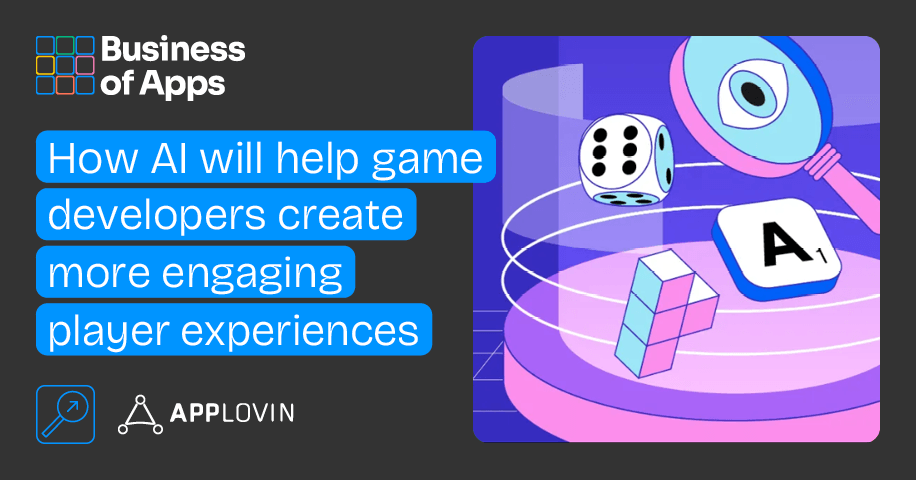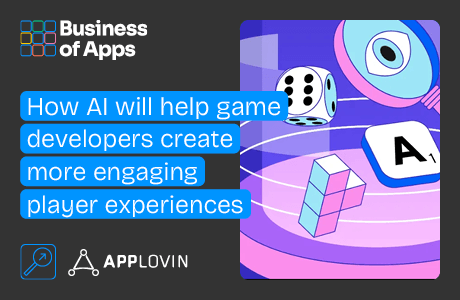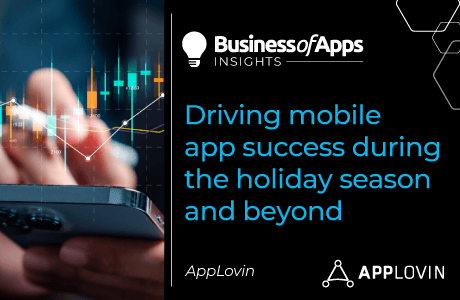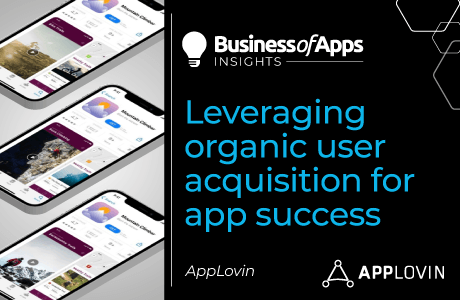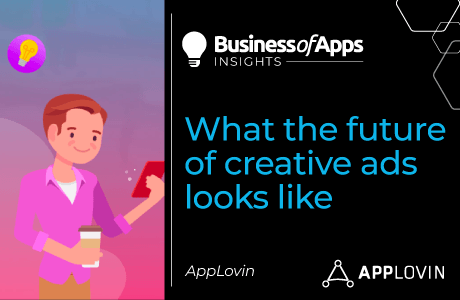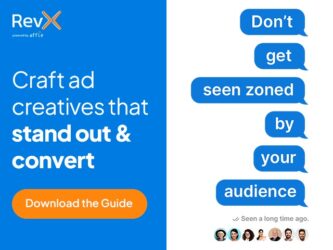Developers understand that personalization is crucial for making mobile games compelling and increasing user retention. As AI continues to advance, developers have a significant opportunity to hyper-personalize virtually every aspect of mobile gaming — and, in turn, drive memorable and stickier user experiences.
Developers can use AI to keep games endlessly engaging, ensuring that no two playthroughs are the same. For example, developers can mobilize AI to analyze a player’s actions and preferences and generate customized content on the fly — including unique levels, environments, and narratives.
AI can also be deployed to analyze a player’s performance in real time and adjust a game’s difficulty level accordingly. That way, games remain challenging but not frustrating, and players of all skill levels can maintain high levels of motivation and excitement. Understanding a player’s skill level can also be used to offer customized advice for improvement or tailored training drills to address needs or weaknesses.
With methods like these, developers will be increasingly adept at creating truly bespoke experiences for mobile gamers that keep them coming back for more.
More AI-driven personalization methods developers should explore
In addition to providing dynamic customized game content, difficulty adjustment, and player performance analysis, AI will allow developers to better incorporate more external data and inputs to amplify in-game experiences. One input developers could use AI to support is vocal commands. For example, if the developers of an RPG app were to implement AI-based voice and language processing, they could enable users to give verbal instructions for creating their characters and interacting with other players.
Other external inputs that AI can bring to the in-game experience include location and real-world behavior. Let’s say the developers of a puzzle game decided to incorporate AI-driven behavioral personalization. They could use AI to analyze a user’s skill level, making the puzzles difficult enough to keep the user challenged. At the same time, location data could inform the visual theme of the game, incorporating elements of the local landscape from landmark buildings to native trees and birds.
With respect to in-game creatures and characters, AI can raise the quality of non-player character (NPC) behavior. NPCs are staples for many mobile games, but their rigidity and lack of spontaneity can make them forgettable. With AI, NPCs can react more realistically to a user’s actions, leading to more dynamic interactions and creating lifelike environments within games. For instance, AI-enhanced NPCs could assist users with building their worlds and completing missions as if they were real-life players.
Besides shaking up non-player characters, developers can use AI to facilitate better gamer-to-gamer experiences. For competitive multiplayer games, AI could be used to improve player matching, both to ensure skill levels are balanced between players and to better connect players with similar interests. Developers for a competitive multiplayer game, for example, could implement this AI function to prevent lopsided matchups between players, making it easier for players with similar strategic and tactical interests to discover each other.
AI-driven personalization will accelerate UA
By harnessing AI for personalization, developers will enhance in-game experiences and increase overall player engagement and satisfaction. Besides making the games themselves stickier, AI-driven personalization can also help developers lower accessibility and inclusivity barriers to bring in more gamers.
As developers improve personalization with AI, they’ll boost engagement, which increases user lifetime value. Plus, as they use AI to receive and analyze more data, that data can be leveraged to assist UA managers in identifying trends, reaching target audiences, and unlocking new growth opportunities.
So, AI-powered mobile game personalization won’t just create more tailored and immersive experiences for existing players. It will arm developers with the data they need to discover new ones.



